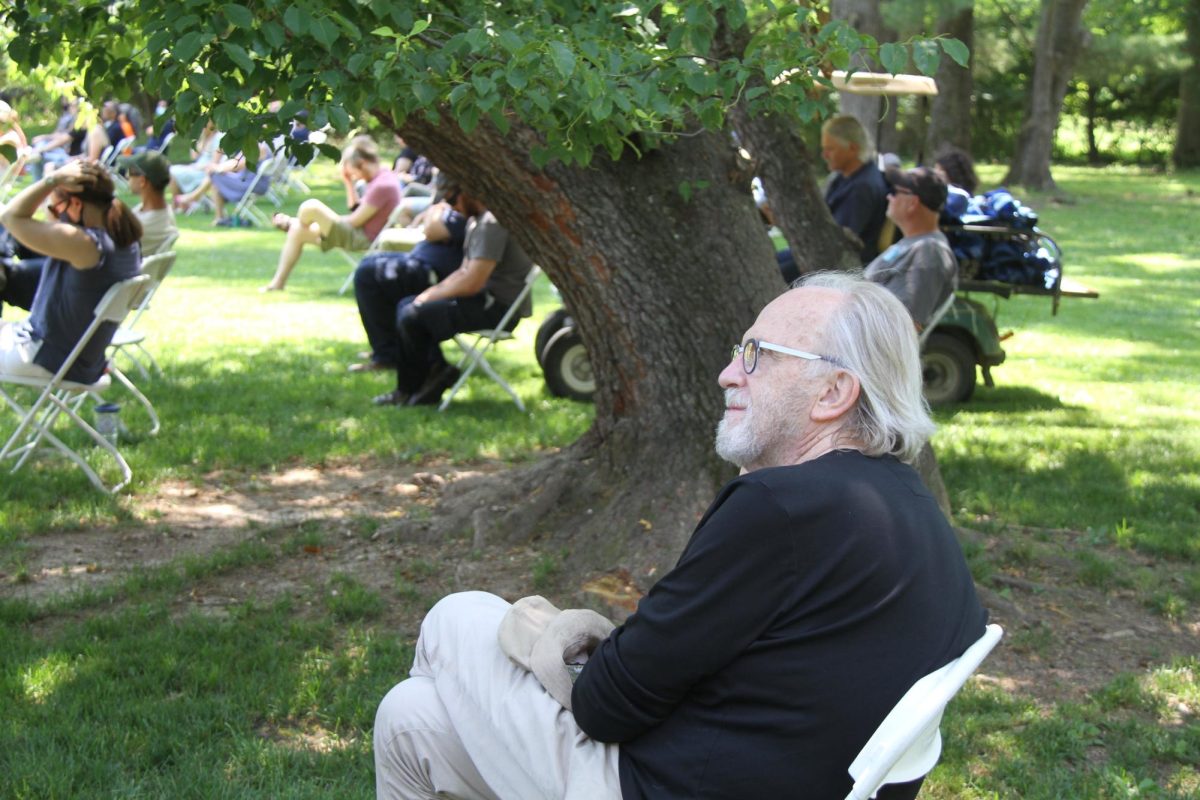Is Your Friendship Toxic?
It can be difficult to identify a toxic friendship when you are a part of it. (Photo/Sam Manns/Unsplash)
May 18, 2020
A friendship has the potential to be among the most devoted and impactful relationships in someone’s life. Whether you are a child, adult, or anything in between, your friends can help you to be the best version of yourself. However, negative friendships can be extremely detrimental to both parties for a multitude of reasons. It is crucial to address how toxic friendships affect people, and what to do if you are in one.
The first step to identifying a toxic friendship is understanding a healthy one. The book High School’s Not Forever by Dr. Jane Bluestein, professor of Health Policy and Medicine, and Dr. Eric Katz, details a series of traits present in positive friendships. “Healthy friendships are safe and secure. In unhealthy relationships, trusts are broken, secrets are shared, and confidentialities are betrayed…people ridicule one another, gossip or spread rumors.” This mirrors PDS Director of Counseling and Learning Specialist Dr. Samantha Dawson’s list of the first signs of a toxic friendship, including “things like not being trustworthy, or talking about you behind your back, and unkind remarks ranging from teasing to demeaning comments…Trust your instincts; if your friend makes you feel badly about yourself, that is often a first sign.” A toxic friendship is an unstable or hostile one, which brings you down instead of lifting you up. Distrust and ridicule form a weak base for a positive friendship to be built on.
Toxic friendships also vary in form. Dr. Dawson explained that a friendship’s toxicity can be found in either or both individuals. It can also be specific to one relationship, while another relationship with one member from the toxic friendship could be healthy. According to sociologist and author Dr. Jan Yager, there are 21 types of bad friends: “Risk takers, betrayers and abusers are the most extreme kinds of bad friends… Occupying the second tier of badness are the liar, the person who is overly dependent, the friend who never listens, the person who meddles too much in a friend’s life, the competitor and the loner.” While toxic friendships manifest themselves differently and have varied symptoms, Dr. Dawson explained that there is a general toxicity checklist: “Ask yourself: Do I feel better after spending time with this person? Am I myself around this person? Do I feel secure or like I have to watch what I say and do? Is this person supportive? Do they treat me with respect? Is this a person I can trust?”
While toxicity is something you should try to cut out of your life, one struggle, especially for teenagers, is wanting to hold onto relationships. As young people, many of the friends you have now are people you have known for a long time. Letting go of a friendship can be difficult with the idea of “friends for life” as a goal that you want to aspire. It is also hard to end a relationship with someone in your school, as you are constantly in close proximity to them. This decision is not an easy one to make, and it should not be taken lightly. Dr. Dawson added, “All relationships develop, change, and grow over time. All relationships have ups and downs and sometimes it can be healthy to overlook misunderstandings or differences of opinion.”
Differences of opinion can be good in a friendship. It is important to diversify the people you surround yourself with and have someone who can challenge your ideas and allow you to expand your thinking. However, Dr. Dawson noted that, “If a relationship at any point brings more negativity than positivity, it is time to consider whether it should endure.”
Finally, Upper School Counselor Alexandra Portale brought up a point that while some relationships will inevitably be defined as “toxic,” also consider how to handle your challenging friendship with empathy and respect. “Oftentimes when relationships experience tension, the individuals involved may hold onto the narrative that the other person’s behavior is entirely about them,” noted Ms. Portale. “People’s behavior is often reflected by how they feel about themselves. Working on ourselves and striving for growth and positive change can have an incredible impact on our ability to connect with others. I personally am hesitant to use the label toxic friendship because there can be a lot more going on under the surface. However, it is important to take care of yourself and emotional well being so sometimes distancing yourself from a strained relationship is important.”






